Would you like to know what kind of gas a Chevy Suburban takes? Well, we have researched this question and have answers for you. It can be helpful to know what type of gas a Chevy Suburban takes to ensure you fuel your Suburban with the proper fuel.
The Chevy Suburban takes standard 85 octane gas. The Chevy Suburban can also take 87 octane gas and premium 91 or 93 octane gas but will receive no benefits from using premium gas.
This article will learn what kind of gas a Chevy Surburban takes. We will also learn the answers to other interesting related questions, such as does a 2021 Suburban require premium gas, and what happens if you use 93 gas instead of 97? Keep reading to learn more.
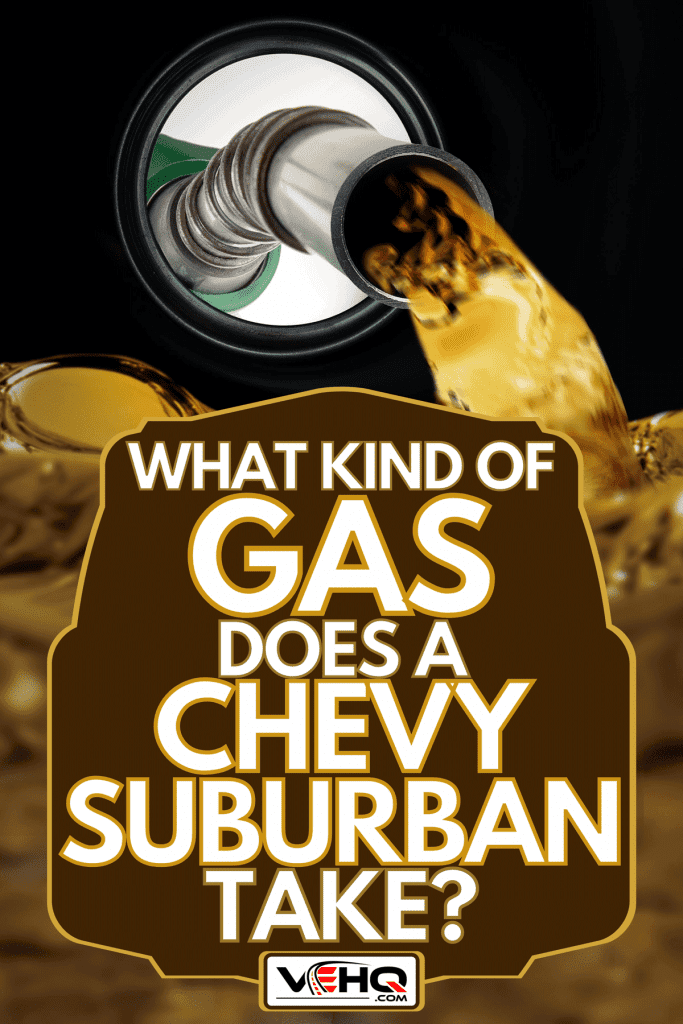
What Kind Of Gas Does A Chevy Suburban Take?
Despite its large size, the Chevy Suburban takes standard 85 octane fuel. Since the Suburban uses so much fuel, many Suburban owners view standard fuel as a huge benefit because of its lower price.
To understand what kind of gas your vehicle takes, you need to know how the octane scale works. Octane is a rating system that measures a fuel's residence to combust.
Higher octane ratings mean the fuel requires more pressure and temperature to combust, which is optimum for turbocharged engines or any other engine that operates with higher pressures.
Some engines require an octane rating between the lower and higher octane ratings. An engine like this would get fuel with an octane rating of around 87 or 89, a mix of the two octane fuels. These two fuel grades can be combined into different combinations at gas stations to give you three or more different octane grades of gasoline.
The lower end of the octane rating scale is called standard and is typically 85 octane. This fuel is usually the cheapest and is useful for more vehicles than any other octane grade.
While there can be more grades of gasoline available, typically, there are three octane grades of gasoline when you fill up your vehicle. These three octane grades are standard 85, mixed 87 or 89, and premium 91 or 93. Let's look at how each of these grades affects the Chevy Suburban's performance.
Standard 85 Octane Gasoline
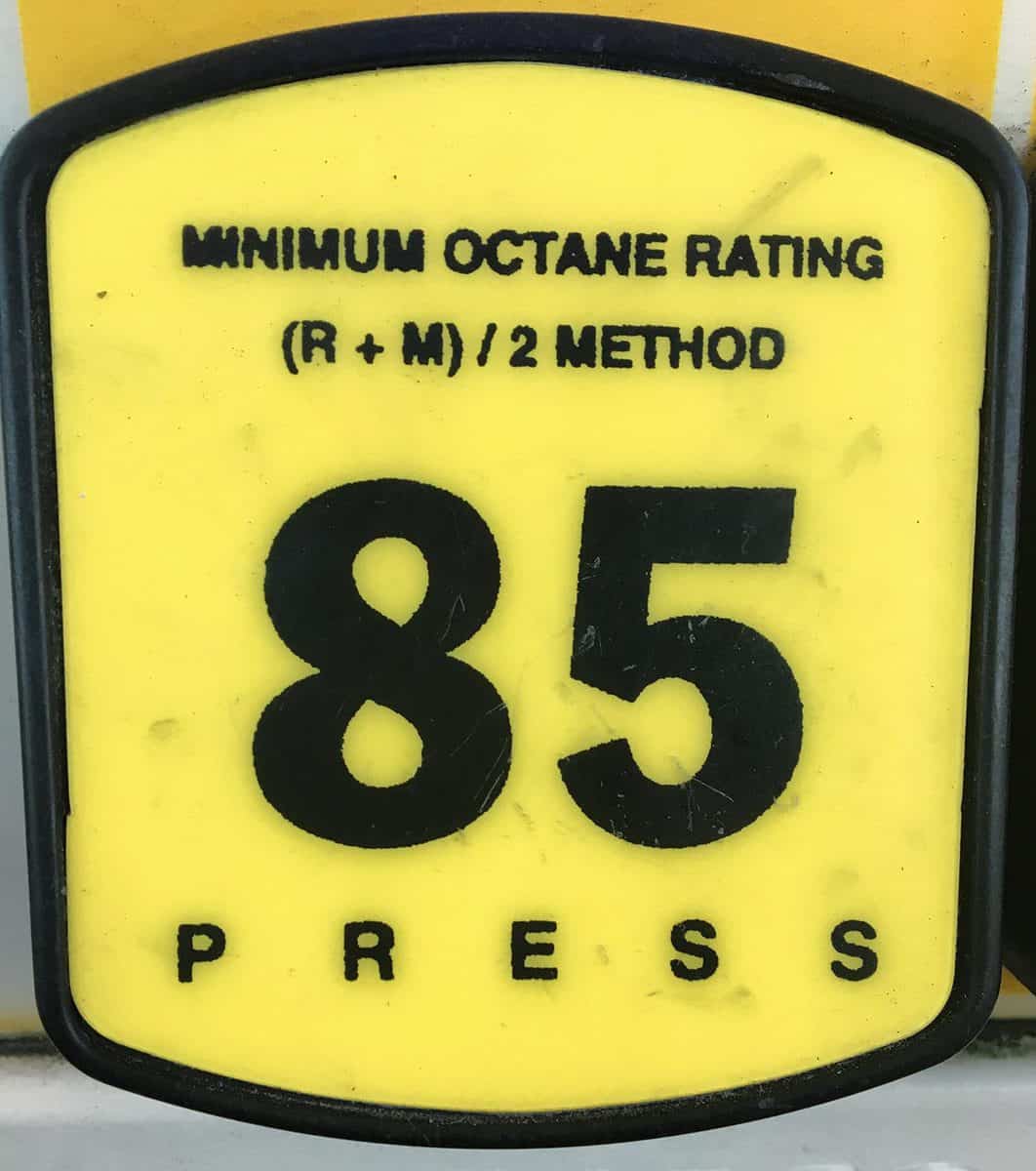
Standard 85 octane gasoline delivers expected performance to your Chevy Suburban. The Chevy Suburban was made to run off of 85 octane gas, which makes it run well with it.
With the Chevy Suburban's size, it burns through gas quickly.
Mixed 87 or 89 Octane Gasoline
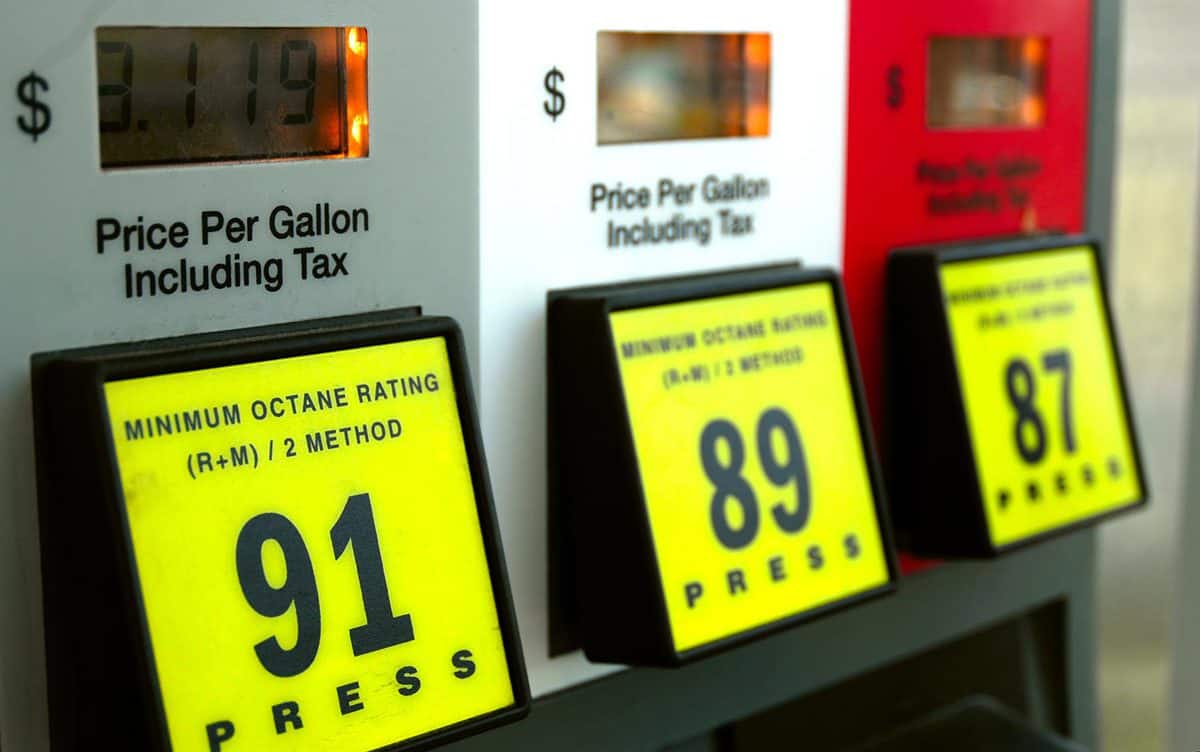
Despite mixed octane gasoline containing a higher octane fuel, it doesn't benefit the Chevy Suburban. The Suburban doesn't gain an advantage using mixed octane gasoline because the engine wasn't designed to extract extra power from higher octane fuels.
Different engines are designed to run optimally with other fuels. While you can put mixed octane gasoline into your Suburban, it won't run any better.
Premium 91 or 93 Octane Gasoline
Like with the mixed octane gasoline, premium octane gasoline won't benefit a Chevy Suburban. The Chevy's engine was not designed to take advantage of high octane fuel.
It would be best to use standard 85 octane gasoline when filling up your Chevy Suburban. While premium fuel won't damage your Suburban, it won't help it either.
Does Suburban Take Regular Gas?
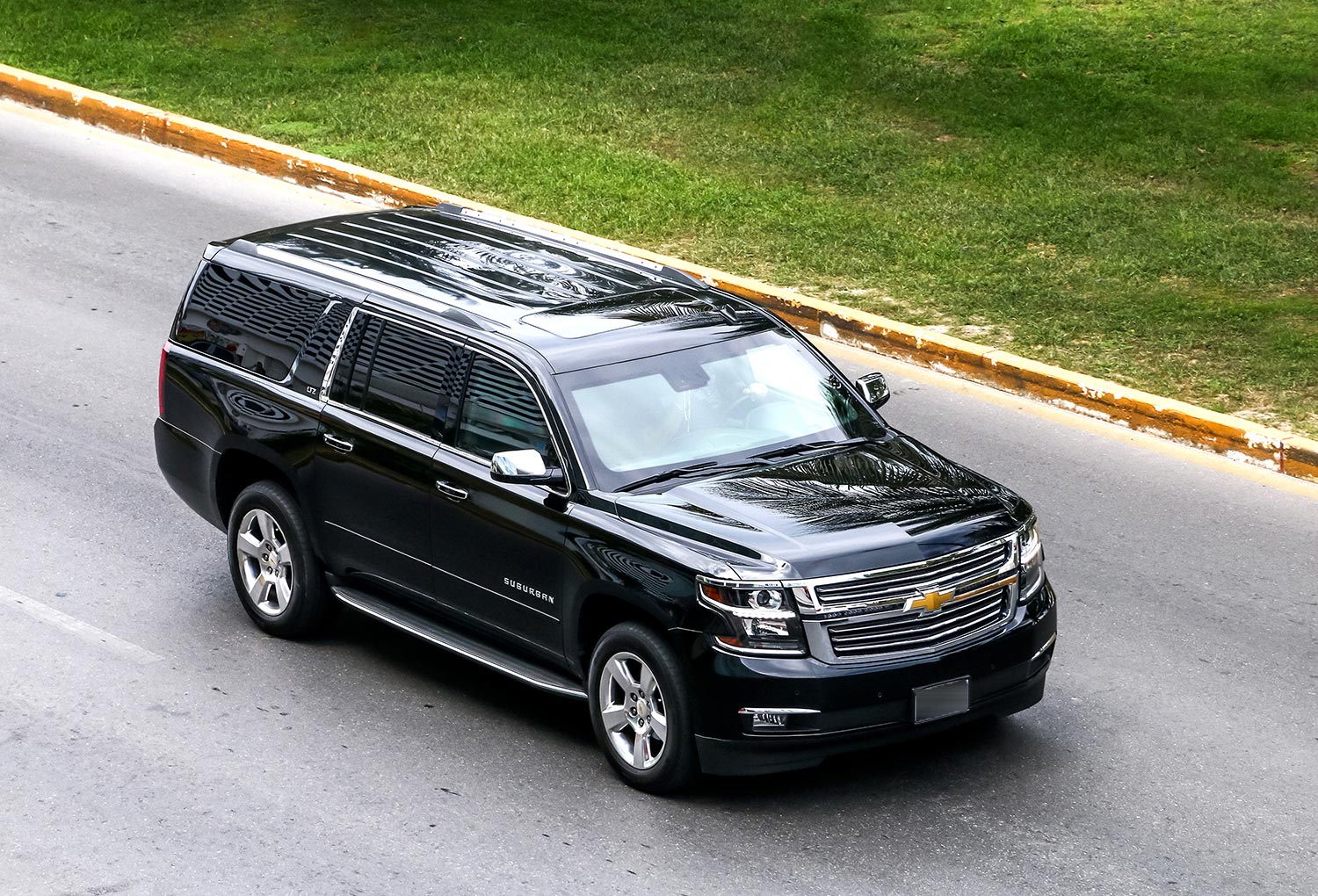
The Chevy Suburban does take regular gas. The recommended gas for the Chevy Suburban is standard 85 octane gasoline. With this fuel, your Suburban should function properly.
The Chevy Suburban can also take mixed and premium octane gasoline but will not see an advantage.
To take full advantage of higher octane gasoline, you need to have an engine designed to use it. The Chevy Suburban was made to run off of standard 85 octane fuel and, as such, works most efficiently with it.
While you can use mixed and premium octane gasoline in a Chevy Suburban, if you try and use diesel fuel in your Suburban and you don't have the Suburban with a diesel engine, it could ruin your vehicle.
Diesel fuel can cause damage to non-diesel engines. If you accidentally put diesel fuel into your Chevy Suburban and don't have the diesel model, do not turn on your engine.
You must call to have your vehicle towed to a mechanic. They will need to remove the diesel fuel from your vehicle's gas tank before it is pumped through the engine. If you cannot remove the diesel fuel before it is dispersed throughout the vehicle, the damage could cost thousands to repair and total the vehicle.
Does A 2021 Suburban Require Premium Gas?
A Chevy Suburban doesn't require premium gas. As mentioned before, Suburbans work best with standard 85 octane fuel. Any other fuel is not necessary for the full function of a Chevy Suburban.
Many think that higher octane fuels like premium fuel are better for your vehicle and help make your vehicle last longer but, this is not the case.
Premium fuel is made to run in engines with higher compression levels to ensure that the fuel combusts at just the right moment. If you put premium fuel in your Suburban, it wouldn't become more efficient.
If you put premium fuel in your Chevy Suburban, its fuel efficiency may drop slightly since the fuel will no longer combust at the most optimum pressure.
The other idea that premium gas makes your vehicle last longer is not valid. Aside from the different octane ratings, there is no difference between premium and standard fuel.
Some believe a special cleaner is added to premium gas to keep your engine cleaner, but this isn't true. Chevron gas stations add a gasoline additive that helps keep engines clean, but they add it to all the octanes of their fuel.
Can You Put 87 Gas In A Suburban?
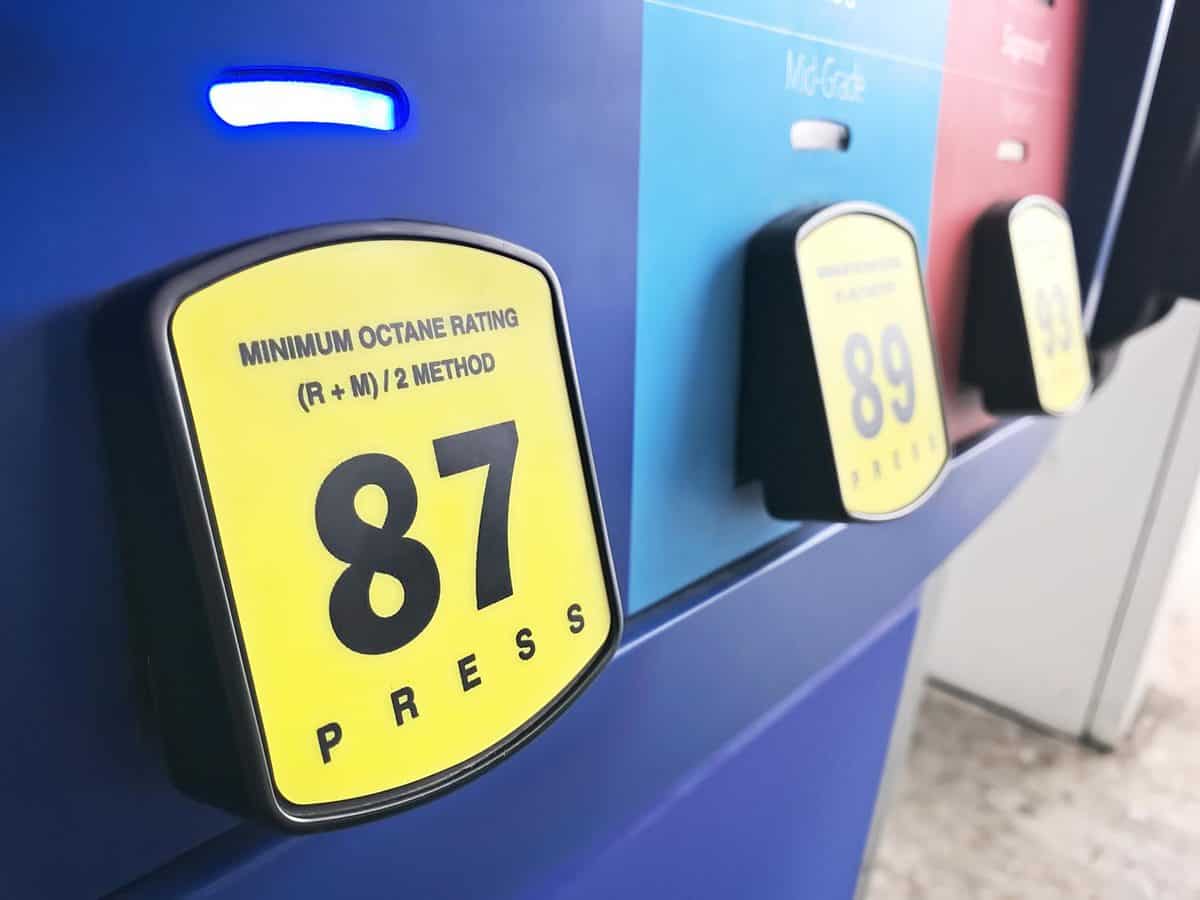
Mixed octane gasses like 87 and 89 octane fuel can be used in a Chevy Suburban. Much like premium gas, blended fuels will not add a benefit when used in a Chevy Suburban.
87 octane fuel can be used in a Suburban, and you will experience no problem, but if you purchased the fuel hoping to gain an advantage, you wouldn't get one.
Some vehicles have engines that need an octane higher than 85 but not as high as 93. There is mixed octane gasoline for these vehicles to help them run at peak efficiency.
Also, as mentioned before, 87 octane gas doesn't have any added cleaner that keeps your engine cleaner than using 85 octane fuel. Using 87 octane fuel offers no advantages and has the disadvantage of costing more than 85 octane fuel.
If you tried to run 85 octane fuel in a vehicle that needed 87, you could see some issues. The first problem you may run into is engine knocking. Your engine knocks because your fuel is combusting before the engine is ready for it.
Higher octane gasoline has higher pressure rates of combustion. If you use lower octane fuel in a vehicle that requires higher octane fuel, the fuel can combust early.
You will hear the signature engine knock noise if your fuel combusts early.
What happens if you use 93 Gas Instead Of 97?
If you have a vehicle that requires 97 octane fuel and you give it 93 octane fuel, you may have a problem.
A vehicle that requires 97 octane fuel will be operating with high pressure and temperatures. The higher pressures and temperatures are why the vehicle needs a higher octane fuel.
If you have a high-octane engine, attempt to use lower octane gasoline; the fuel may explode too early. Higher octane fuel has a higher resistance to exploding. Lower octane fuel explodes at lower pressures and temperatures and may explode too early in a high-pressure, high-temperature engine, like a turbo or supercharged engine.
While many vehicles will operate on fuel that isn't quite the correct octane, it would be best if you always used the manufacturer-recommended octane fuel for any vehicle you drive. Doing so will ensure your vehicle functions properly and has a long lifespan.
Final Thoughts
This article learned that a Chevy Suburban functions best with standard 85 octane gasoline. We also learned that while you can put 87 octane fuel into your Suburban, it won't improve the vehicle's performance or keep the engine clean with a cleaner.
Remember, it would be best to use the octane fuel that your vehicle manufacturer recommends to ensure your vehicle functions properly.
We hope you enjoyed this article. If you want to learn more, check out some of these other posts.
